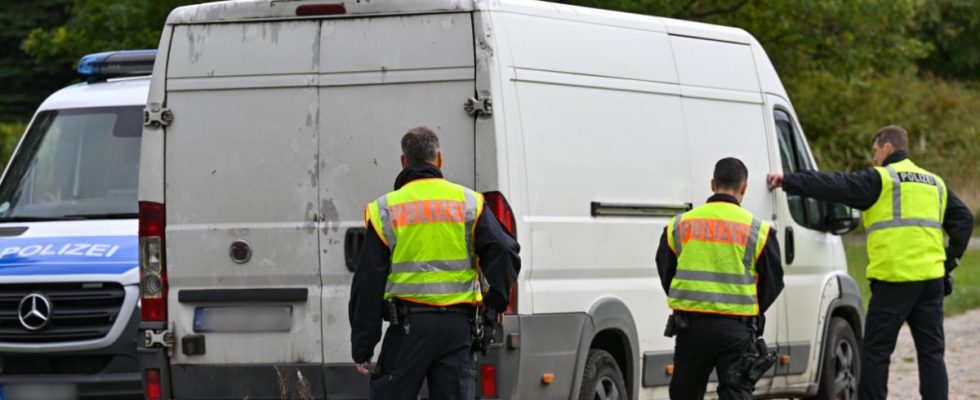The traffic light coalition is waging a fierce conflict over the style of debate on migration policy. Green Party leader Omid Nouripour accused the FDP on Monday of violating “the lower limit of decency.” There is also no excuse for a party that is fighting to reach the five percent hurdle, he said in Berlin. This meant FDP General Secretary Bijan Djir-Sarai, who had attacked the Greens head-on at the weekend. With their migration course they are a “security risk for the country,” said Djir-Sarai.
The remark obviously caused massive anger among the Greens. Party leader Nouripour criticized some of the statements made over the past few days as having nothing to do with a democratic debate. His 14-year-old son would call such behavior “disgraceful.” Because people are now looking forward to the upcoming state elections in Bavaria and Hesse with great nervousness, some people are giving up on constructive cooperation. “I can only invite everyone to stop doing this and come back,” said Nouripour.
Omid Nouripour, federal chairman of the Greens.
(Photo: IMAGO/M. Popow/IMAGO/Metodi Popow)
Border controls have already been discussed with the Czech Republic
The positions of the coalition partners differ widely on key issues. Federal Interior Minister Nancy Faeser (SPD) wants to quickly negotiate stationary border controls with the Czech Republic and Poland. There had already been talks with the Czech side over the weekend, and they would be held with the Polish side “shortly,” said a spokesman for the Federal Ministry of the Interior on Monday in Berlin. The Greens are skeptical about Faeser’s plans. Illegal migration takes place in secret and can hardly be stopped with stationary border controls. “They tie up important federal police personnel who are urgently needed elsewhere in the country. They also have a significant impact on the everyday lives of people in border regions,” said parliamentary group leader Britta Haßelmann South German newspaper. What is clear, however, is that the difficult situation in municipalities requires “answers”.
Support came from the federal states on Monday for the Federal Interior Minister’s plans to control the borders to Eastern Europe more closely. Today there are five times as many refugees living in their state as in 2015, said Lower Saxony’s SPD Interior Minister Daniela Behrens. Such an increase cannot be expected of society in the long term. Germany and the EU would have to impose stricter restrictions on entry. But she also sees Eastern European countries as having a duty here. They would have to take responsibility for asylum seekers who have arrived there and should not simply let them pass through to Germany.
The criticism is aimed at the Polish government, whose officials are being investigated by the Polish public prosecutor’s office. It is about the suspicion that corrupt employees of Polish consulates in Asia and Africa are said to have sold masses of visas for the EU. According to reports, up to several hundred thousand migrants were illegally allowed to enter the EU, including Germany. At an SPD rally in Nuremberg at the weekend, Chancellor Olaf Scholz (SPD) announced that he wanted to talk to the Polish government about these possible irregularities. “I don’t want Poland to simply wave us through and then have a discussion about our asylum policy afterwards,” he said.
The reaction to Scholz’s remark was sharp
For Poland’s right-wing conservative ruling party PiS, the criticism is extremely inconvenient. Elections will take place in Poland in mid-October. Foreign Minister Zbigniew Rau reacted unusually sharply to the German Chancellor’s remark. It “indicates an attempt to interfere in the internal affairs of the Polish state and the ongoing election campaign in Poland,” he wrote on the short message service In Berlin, government spokesman Steffen Hebestreit rejected the allegations with audible irritation. “I can’t see any interference in any election campaign,” he said.
There was also bad news on Monday from the federal-state working group that is supposed to mediate in the dispute over the financing of refugee costs. Negotiating circles said that the committee “disbanded and ended without any result.” This means that there is no negotiating paper on the basis of which the Chancellor can negotiate with the state prime ministers on November 6th. From the state side it was heard that the federal government only wanted to support states and municipalities with a maximum of 1.7 billion euros in 2024. That would be less than half compared to the current year and would be met with “great incomprehension”. The federal government said that an agreement was still expected.

